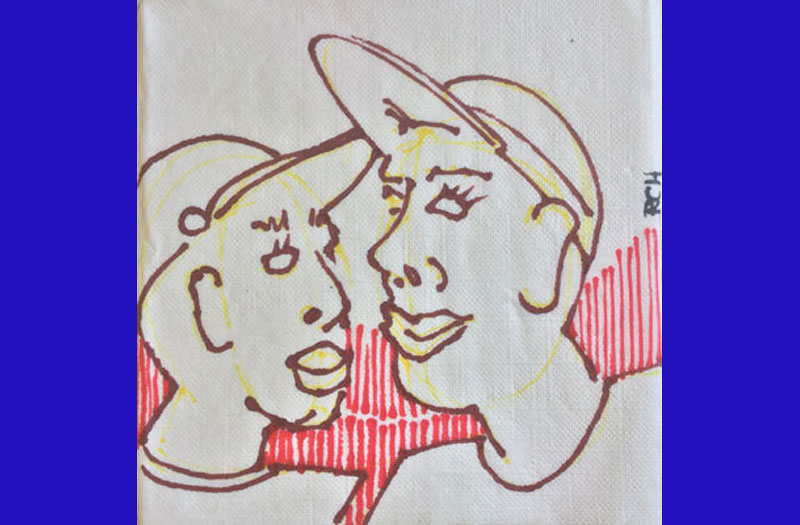[Click on BLUE links for sources and information]
Repeat a lie often enough and it becomes the truth. Joseph Goebbels
It’s called the “illusion of truth” and it is a powerful tool for authoritarian leaders, advertisers, and all types of propagandists. “Infectious Repetitis” is what Daniel Dennett called it in his Ted Talk (see below) about Dangerous Memes. “Regurgiquotes” is another term I’ve heard used to describe the well known fallacy of argumentum verecundiam, that is argument by appeal to authority [instead of appeal to the facts].
Do you have a fluke in your brain? How did it get there? What can you do about it?
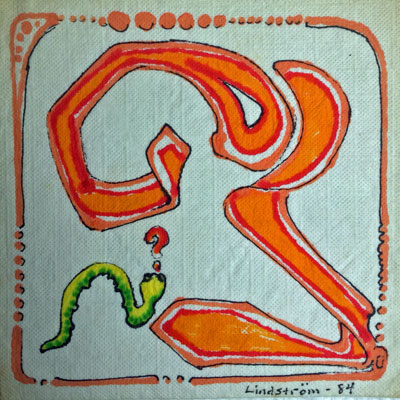
Sea Gull Cellar Bar Napkin Art, Sandra Lindstrom artist
We live in a time when words pack a powerful punch. How powerful? One need only witness our current President, Donald Trump. According to a brilliant article in GQ Magazine, Donald Trump learned how to “bully, brag and insult his way through the front door of 1600 Pennsylvania Avenue” from none other than boxing legend Mike Tyson. Donald Trump lies, exaggerates and twists the truth daily in his tweets, his public statements, to the press and through his staff as has been well documented.
Aside from challenging the notion that Trump is a racist and Islamophobe, however, the future US president’s unlikely bond with the so-called “Baddest Man On The Planet” suggests something even more extraordinary: that it was Tyson – not Steve Bannon or even Vladimir Putin – who planted the strategic seeds for Trump’s hostile takeover of the United States Of America in 2016.
Certainly, research by GQ indicates that Trump learned more from Tyson, a self-described “tripolar” ex-street criminal who used fear and outrage as psychological weapons, than the other way around.
“In the dressing room after some of his early fights, Mike would say things like, ‘When I hit him, he screamed like a woman’ or ‘I wanted to push his nose bone back into his brain,’” marvelled Trump in his surprisingly nuanced 1990 memoir, Surviving At The Top. “Mike knew those were ridiculous things to say, but he was hoping that the reporters would print his outrageous remarks and that his next opponent would read them and become a beaten man, right then and there.” More often than not, Trump continued, the press played along, because controversy sells newspapers and gets ratings like nothing else.
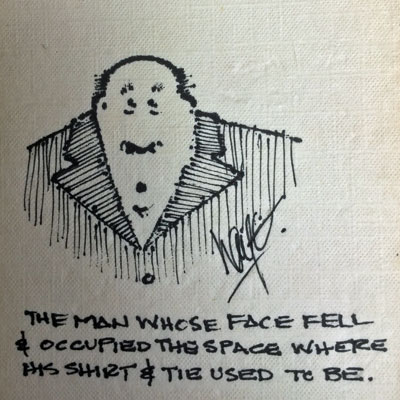
Sea Gull Cellar Bar Napkin Art, Jack Haye artist
So? What about Abe Lincoln’s famous observation? We can be fooled sometimes but not all the time, right?
You can fool all the people some of the time and some of the people all the time, but you cannot fool all the people all the time. Abraham Lincoln
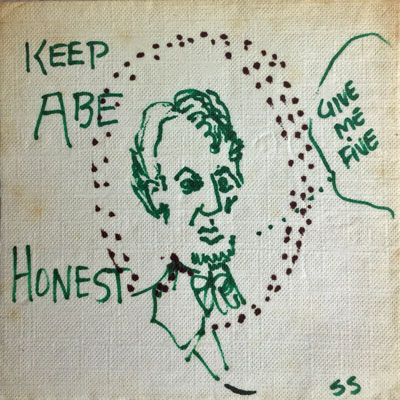
Sea Gull Cellar Bar Napkin Art, SS artist
In the first place, Trump doesn’t need to fool all the people all the time. He just needs to fool a majority of electoral voters around election time. And, based on past history, he may well succeed again when he get’s another go around in 2020.
Second, we don’t know for sure when and if Lincoln actually made such an observation. Advertising geniuses, including Donald Trump, have put the observation to good use anyway by turning the Lincoln quote on it’s head. Trump won. He couldn’t have fooled all the people so he must have been the best. Curious logic.
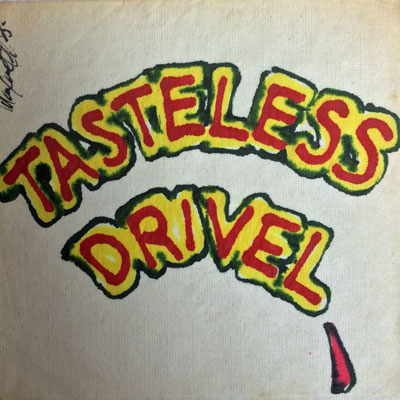
Sea Gull Cellar Bar Napkin Art, James Maxwell artist
It was Hitler long before Tyson who wrote about the power of the “big lie” in Mien Kampf.
All this was inspired by the principle – which is quite true in itself – that in the big lie there is always a certain force of credibility; because the broad masses of a nation are always more easily corrupted in the deeper strata of their emotional nature than consciously or voluntarily; and thus in the primitive simplicity of their minds they more readily fall victims to the big lie than the small lie, since they themselves often tell small lies in little matters but would be ashamed to resort to large-scale falsehoods. It would never come into their heads to fabricate colossal untruths, and they would not believe that others could have the impudence to distort the truth so infamously. Even though the facts which prove this to be so may be brought clearly to their minds, they will still doubt and waver and will continue to think that there may be some other explanation. For the grossly impudent lie always leaves traces behind it, even after it has been nailed down, a fact which is known to all expert liars in this world and to all who conspire together in the art of lying. These people know only too well how to use falsehood for the basest purposes. From time immemorial, however, the Jews have known better than any others how falsehood and calumny can be exploited. Is not their very existence founded on one great lie, namely, that they are a religious community, where as in reality they are a race? And what a race! One of the greatest thinkers that mankind has produced has branded the Jews for all time with a statement which is profoundly and exactly true. Schopenhauer called the Jew “The Great Master of Lies”. Those who do not realize the truth of that statement, or do not wish to believe it, will never be able to lend a hand in helping Truth to prevail.
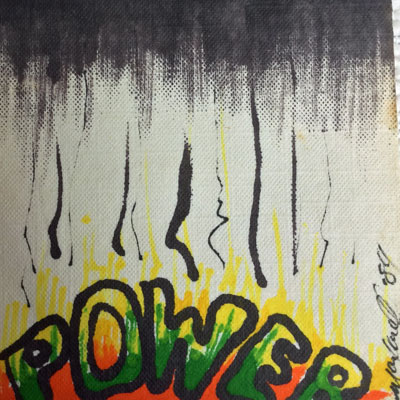
Sea Gull Cellar Bar Napkin Art, James Maxwell artist
Once we know about the potential for “flukes” to invade our brains, we have a power Dennett’s ant does not have. We can remove the fluke. We can learn to double check why we believe what we believe. In a world where words can turn into dangerous memes, we have a responsibility to gather the facts before we mindlessly repeat what we hear on social media, in the news, and out of the mouths of would be kings. We have that power, but we must use it. That takes conscious effort and hard work. But we can do it. We must do it if we want democracy as we know it to survive. (see Trump’s Lies Corrode Democracy)
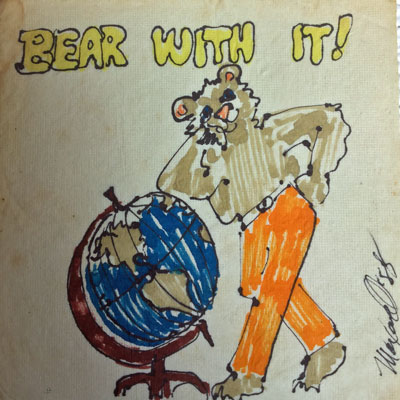
Sea Gull Cellar Bar Napkin Art, James Maxwell artist
He who does not bellow the truth when he knows the truth makes himself the accomplice of liars and forgers.
We must always tell what we see. Above all, and this is more difficult, we must always see what we see.
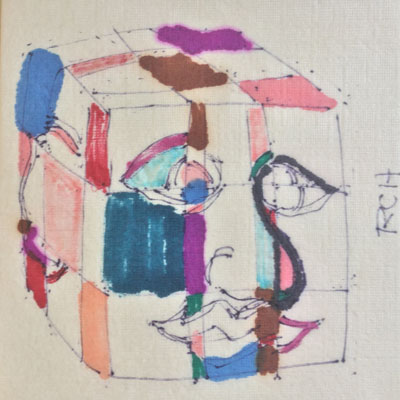
Sea Gull Cellar Bar Napkin Art, Roy Hoggard artist

